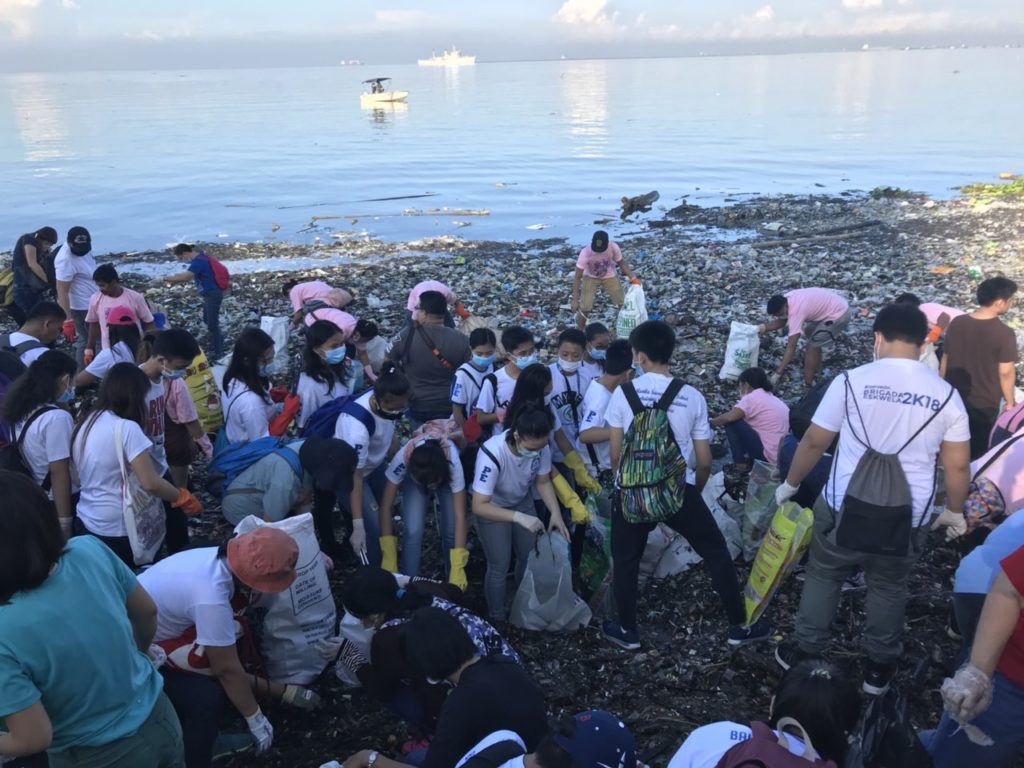
The Philippine Alliance for Recycling and Materials Sustainability, actively participated in this year’s International Coastal Cleanup as part of their continuous effort to fight plastic pollution. / Contributed photo
The International Coastal Cleanup (ICC) 2018 has mobilized various companies and organizations in the shared advocacy of cleanup of bodies of water while fostering awareness on the global issue of marine debris.
The Philippines first joined the international initiative in 1994, making it the first organized coastal cleanup in the country. Now, 23 years later, the ICC remains to be one of the biggest movements on coastal conservation.
This year’s theme, “Fighting for Trash Free Seas,” unites all sectors again in a nationwide cleanup in major coastlines. This vision is shared not only by the government and those who depend on the seas as their source of livelihood, but also by concerned citizens, the academe, non-government organizations (NGOs) and private organizations.
One of the groups who joined this effort and actively participated in ICC initiatives is the Philippine Alliance for Recycling and Materials Sustainability (PARMS).
Over 450 volunteers from PARMS members participated in the coastal cleanup activity in four cleanup sites — Manila Bay, Batangas, Subic, and Cebu. Aside from fielding in volunteers, PARMS also supplied a truck to take back the waste collected by its group for proper treatment and disposal.
In 2017, PARMS, with its members in the FMCG and plastics industry, along with other environmental NGOs, committed to build a facility to recycle sachets and other flexible plastics in Parañaque City from its private investment.
In the short-term, PARMS has partnered with GreenAntz to produce eco-bricks made of used plastic that can be used for environmental and affordable construction. It is also exploring other private sector partners for co-processing — to allow the organization to significantly reduce both waste and greenhouse gas emissions.
PARMS engaged public schools in Parañaque in a pilot Information-Education-Communication program designed to encourage students and teachers to develop positive habits anchored on proper segregation, recycling and collection of flexible plastics. The facility, seen to be operational in the first quarter of 2019, will be looking into recycling plastic into value added products such as desks and benches for donation back to public schools and planks for construction material.
On an individual company level, members have made commitments towards packaging design innovations using recyclable and recycled materials, and have various local initiatives geared towards awareness and collection. All these form part of a more holistic approach to manage and address the challenge of plastic pollution.
“PARMS adopts current available technologies to properly treat waste. These will lead to the production of items such as classroom resources, including school chairs, or plastic lumber with the technical expertise from the Philippine Plastics Industry Association and the academic community. In the long-term, the collaboration will look into advanced technologies to extract materials for reuse into packaging towards a Circular Economy,” said Crispian Lao, PARMS President. /PR